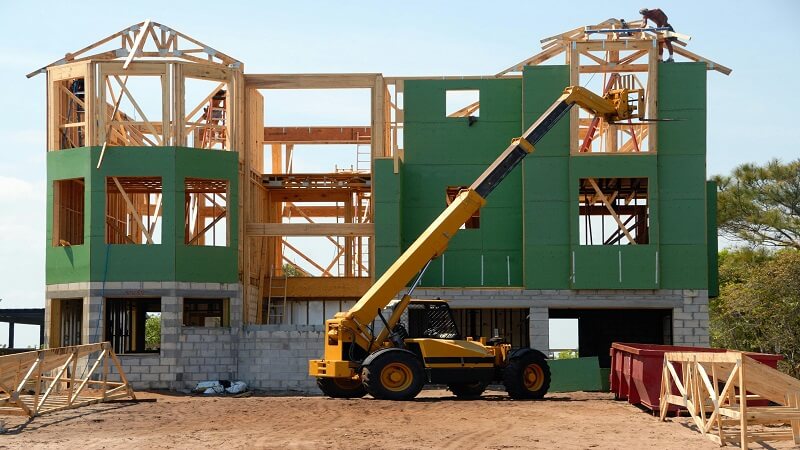Building your dream home is a thrilling yet demanding endeavor. While it’s easy to get caught up in the excitement, it’s crucial to understand the many steps and considerations involved. A successful project requires careful planning, the right choices, and expert guidance along the way. Too often, people make simple mistakes that end up being costly in both time and money. Working with experienced professionals can help steer you in the right direction.
In this article, we’ll discuss common errors you should avoid when creating your perfect living space, ensuring you don’t face unnecessary headaches in the process.
Here’s what you need to know:
Not Setting a Realistic Budget
A budget is the foundation of any successful project. Without one, it’s easy to lose track of expenses, leading to unexpected financial stress. It’s essential to set a realistic budget at the beginning and include a contingency for unplanned costs. Unexpected expenses can come from hidden structural issues, design changes, or upgrades to materials. Breaking your budget into categories—such as materials, labor, and permits—can help keep things under control. Regularly reviewing your spending throughout the project can also prevent overspending. A well-defined budget helps you make informed decisions and reduces the likelihood of unnecessary financial strain.
Skipping the Design Phase
Rushing into construction without carefully considering the layout and flow of your living space can lead to frustration later on. Taking the time to hire the right custom home builders and carefully plan and finalize a detailed design will ensure that your space is functional, aesthetically pleasing, and aligned with your vision. For example, a Ballard custom home builder can offer valuable insight into optimizing layouts, room updates, and adding new spaces for improved comfort and practicality. Their experience with additions and renovations can help you rethink your space to better suit your needs. Investing time in thoughtful planning, with professional input, can save you from costly modifications down the line and ensure long-term satisfaction with your living space.
Ignoring the Importance of Location
Location plays a vital role in the success of your project. The right spot can enhance the comfort and value of your property, while a poorly chosen area may lead to inconveniences or lower resale value. Factors like proximity to work, schools, amenities, and public transport should all be considered. Furthermore, environmental factors such as weather, noise levels, and safety can affect your daily life. Make sure to take time to research your options. A well-thought-out location sets the foundation for your long-term happiness and investment potential, so choose wisely.
Not Considering Future Needs
When designing your dream home, it’s easy to focus solely on your current lifestyle. However, it’s important to consider future needs as well. Whether you plan on expanding your family, aging in place, or working from home, make sure your home is flexible enough to accommodate these changes. Features like extra bedrooms, adaptable living spaces, or ramps for accessibility are just a few considerations. Anticipating how your requirements might evolve can help avoid costly adjustments later. Building with the future in mind ensures that your living space continues to serve you well for years to come.
Underestimating the Value of Quality Materials
Cutting corners on materials may save money initially, but it can lead to long-term issues. Low-quality materials wear out quickly, may require frequent repairs, and can even affect your health or comfort. Opting for durable and high-quality options ensures that your living space stands the test of time. Whether it’s flooring, roofing, or insulation, choosing quality materials can improve your property’s overall performance and appearance. In the long run, investing in robust, reliable materials helps minimize repairs and maintenance costs, making your living space a better investment overall.
Skipping Necessary Permits and Inspections
Neglecting to secure the proper permits and inspections is a common mistake that can lead to significant delays and additional costs. Permits are necessary to ensure your project complies with local building codes and safety standards. Failing to obtain these permits may result in fines or forced removal of non-compliant work. Inspections throughout the construction process help identify potential problems before they become costly repairs. Always work with experienced contractors familiar with your area’s required permits and inspections. Doing so can help ensure your project stays on schedule and meets all regulatory standards.
Overlooking the Importance of Energy Efficiency
In today’s world, energy efficiency is more important than ever. Not incorporating energy-efficient features can result in higher utility bills and a less comfortable living environment. Simple upgrades like energy-efficient windows, proper insulation, and modern heating and cooling systems can significantly affect energy consumption and overall comfort. Green technologies, such as solar panels or rainwater harvesting systems, can further reduce your home’s environmental impact and save money over time. Prioritizing energy efficiency during the design and construction phases can help lower long-term operating costs and increase your home’s value.
Not Preparing for Delays
Delays are inevitable in most construction projects, and it’s crucial to be prepared for them. Whether due to weather conditions, supply chain issues, or labor shortages, delays can push back your expected move-in date. While it’s impossible to eliminate all delays, proactive planning can help mitigate their impact. Make sure to factor in some buffer time when setting your expectations for the project’s timeline. Staying flexible and maintaining regular communication with your builder can help you navigate any setbacks that arise, ensuring that the process continues as smoothly as possible.
Building your dream home is an exciting and rewarding endeavor, but it requires careful planning and attention to detail. Avoiding common mistakes, such as neglecting permits, underestimating material quality, or failing to communicate with your builder, can make the difference between a smooth process and costly setbacks. By working with experienced professionals, maintaining clear communication, and thinking ahead about your needs, you can ensure that your dream home becomes a reality without unnecessary complications. With the right approach, you can create a space that meets your immediate needs and supports your future goals and aspirations.

